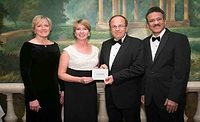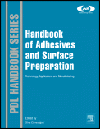WACKER and Karlsruhe Institute of Technology Establish Platform for Sustainable Construction

MUNICH — The Munich-based WACKER Group is supporting a project by the Karlsruhe Institute of Technology (KIT) to build an innovation platform for sustainable construction. The project being funded, known as “ChangeLab! WACKER/KIT Innovation Platform for Pioneering Sustainable Construction,” is aimed both at the institute’s students and at architects, engineers and construction experts seeking to learn about and discuss new ideas and conceptual approaches in the field of materials development and in construction methods for a circular economy. Public lectures, symposia and ideas competitions are planned. All activities on the platform will be posted publicly on the website https://changelab.exchange/. WACKER is also providing funding for a digital overhaul of the department’s materials library. The project is scheduled to last three years.
The goal of the innovation platform is to forge stronger ties between researchers and actors at the various stages of the construction-sector supply chain. Events such as the “grow.build.repeat.” symposium, likely to be held in KIT’s Department of Architecture on Dec. 3-4, 2020, will encourage discussions on the biological material cycle within the construction industry and foster networking among that industry and among architecture and construction research. The focus will be on the innovative potential offered by renewable construction materials and their construction principles in this sector.
WACKER expects to gain major impetus from this collaboration with KIT. “Even in times of the coronavirus, sustainability remains a top priority for us,” said Peter Summo, President of the WACKER POLYMERS business division. “We are deliberately laying down a marker for the development of sustainable technologies in the construction sector. This is a matter of strategic importance to us.”
WACKER has long espoused sustainable product solutions. WACKER POLYMERS, a producer of binders based on vinyl acetate-ethylene copolymers, uses bio-based acetic acid sourced from the timber industry to manufacture binders for interior wall paints. “We rely on discussions with experts at every stage of the value-creation chain to keep driving the adoption of these kinds of sustainable, innovative approaches,” emphasized Summo. “The ChangeLab! platform creates the environment for discussions of this kind among all participants.”
The other project partner involved in the innovation platform is the Professorship of Sustainable Construction at the Institute for Building Design and Technology within the KIT’s Department of Architecture. An expert group there, led by Professor Dirk E. Hebel, has been conducting research and practical work on sustainable materials resources and closed-loop construction principles since 2017.
The innovation platform is open to students, representatives from the construction and engineering industries, experts, and material scientists. The plan is to expand it over the coming months into a forum for discussion and experimentation. The website for the ChangeLab! project will serve as a central information hub, affording representatives from science and the construction industry an opportunity to discuss their ideas, questions and visions, and to report on their work, thereby presenting reference points for novel approaches. The website will also post information on training opportunities and other public events related to sustainable construction.
Looking for a reprint of this article?
From high-res PDFs to custom plaques, order your copy today!









